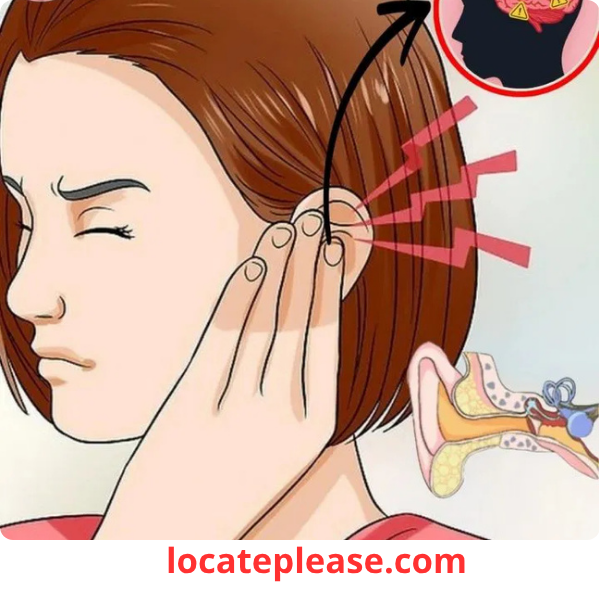Tinnitus, the constant ringing, buzzing, or humming sound in your ears, can be both annoying and disruptive. While it’s not a disease itself, tinnitus is often a symptom of an underlying issue such as hearing loss, ear infections, exposure to loud noises, or even stress. Although there is no universal cure for tinnitus, many practical strategies can help you manage the symptoms and regain control over your daily life. Here’s how you can address tinnitus effectively:
1. Protect Your Hearing 🛑🔊
One of the leading causes of tinnitus is prolonged exposure to loud noises. To protect your ears:
- Avoid situations with excessive noise, such as concerts, fireworks, or power tools.
- Use ear protection like earplugs or noise-canceling headphones in noisy environments.
- Lower the volume on your devices, especially when using headphones or earbuds.
Preventing further damage to your hearing is crucial in managing and reducing tinnitus symptoms.
2. Maintain Your Ears Clean
Earwax buildup can contribute to or worsen tinnitus. Keeping your ears clean is essential, but it must be done safely:
- Use gentle cleaning methods, such as warm water or over-the-counter ear drops, to remove excess wax.
- Avoid using cotton swabs, as they can push wax deeper into the ear canal and cause blockages.
- If you suspect a significant blockage or need professional cleaning, consult a doctor or audiologist.
Proper ear hygiene can go a long way in alleviating tinnitus caused by physical obstructions.
3. Reduce Stress and Anxiety 🧘♀️💆
Stress and anxiety can exacerbate tinnitus, making it harder to ignore. Incorporating relaxation techniques into your routine can help:
- Practice deep breathing exercises to calm your mind and body.
- Try meditation or mindfulness to refocus your attention away from the ringing.
- Engage in yoga or gentle stretching to release tension.
- Listen to calming music or nature sounds, such as ocean waves or rainfall, to create a soothing environment.
By addressing emotional triggers, you can reduce the intensity of tinnitus and improve your overall well-being.
4. Try Sound Therapy 🎶🌿
Sound therapy is a popular method for masking tinnitus and creating a more peaceful auditory environment:
- Use white noise machines or apps to produce consistent background sounds.
- Play soft music or nature sounds, such as rain or ocean waves, to distract from the ringing.
- Turn on a fan or air purifier for a subtle hum that helps drown out tinnitus.
These techniques can make tinnitus less noticeable, especially during quiet moments like bedtime.
5. Use Hearing Aids 🎧👂
If you experience hearing loss alongside tinnitus, hearing aids can be a game-changer:
- They amplify ambient sounds, making tinnitus less prominent.
- Improved hearing clarity reduces strain on your ears and brain.
- Modern hearing aids often come with built-in tinnitus-masking features.
Consult an audiologist to determine if hearing aids are right for you and to find the best options for your needs.
6. Watch Your Diet and Lifestyle 🥦☕❌
Your diet and lifestyle choices can significantly impact tinnitus. To minimize symptoms:
- Avoid caffeine and alcohol, as they can overstimulate the nervous system and worsen ringing.
- Reduce salt intake, as high sodium levels may affect blood circulation in the ears.
- Quit smoking, as nicotine restricts blood flow and can aggravate tinnitus.
- Stay hydrated and eat a balanced diet rich in vitamins, minerals, and antioxidants to support ear health.
Small changes in your daily habits can lead to noticeable improvements in tinnitus symptoms.
7. Consider Medical Consultation 🩺👨⚕️
If self-care strategies aren’t enough, seek professional help. Your doctor may recommend:
- Cognitive Behavioral Therapy (CBT): Helps you reframe how you perceive and react to tinnitus, reducing its emotional impact.
- Medications: In severe cases, antidepressants or anti-anxiety drugs may be prescribed to manage stress-related tinnitus.
- Supplements: Zinc or magnesium supplements might promote ear health, but consult your doctor before starting any new regimen.
Professional guidance ensures you receive personalized care tailored to your specific condition.
When to See a Doctor ❗🩺
While occasional tinnitus is common, persistent or worsening symptoms should not be ignored. Seek medical attention if:
- The ringing lasts for more than a week without improvement.
- Tinnitus interferes with your sleep, work, or daily activities.
- You experience additional symptoms like dizziness, hearing loss, or ear pain.
Early intervention can prevent complications and improve your quality of life.
Living with tinnitus can be challenging, but it doesn’t have to control your life. By implementing protective measures, adopting healthy habits, and seeking professional advice when needed, you can manage the symptoms and reduce their impact. Remember, tinnitus is a manageable condition, and with the right strategies, you can reclaim peace and focus in your daily life.
Take the first step today—protect your ears, care for your body, and prioritize your mental well-being. You’ve got this!






